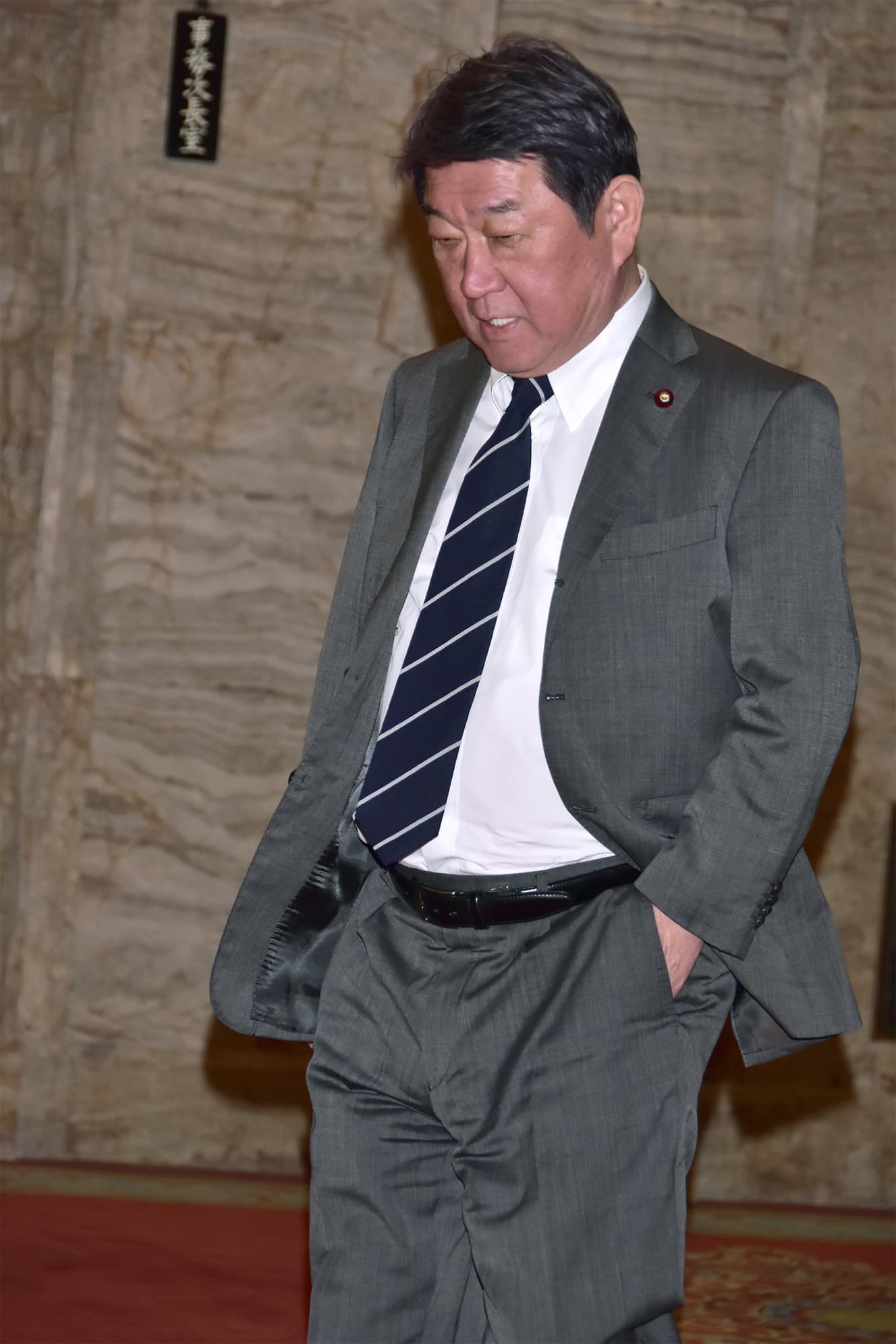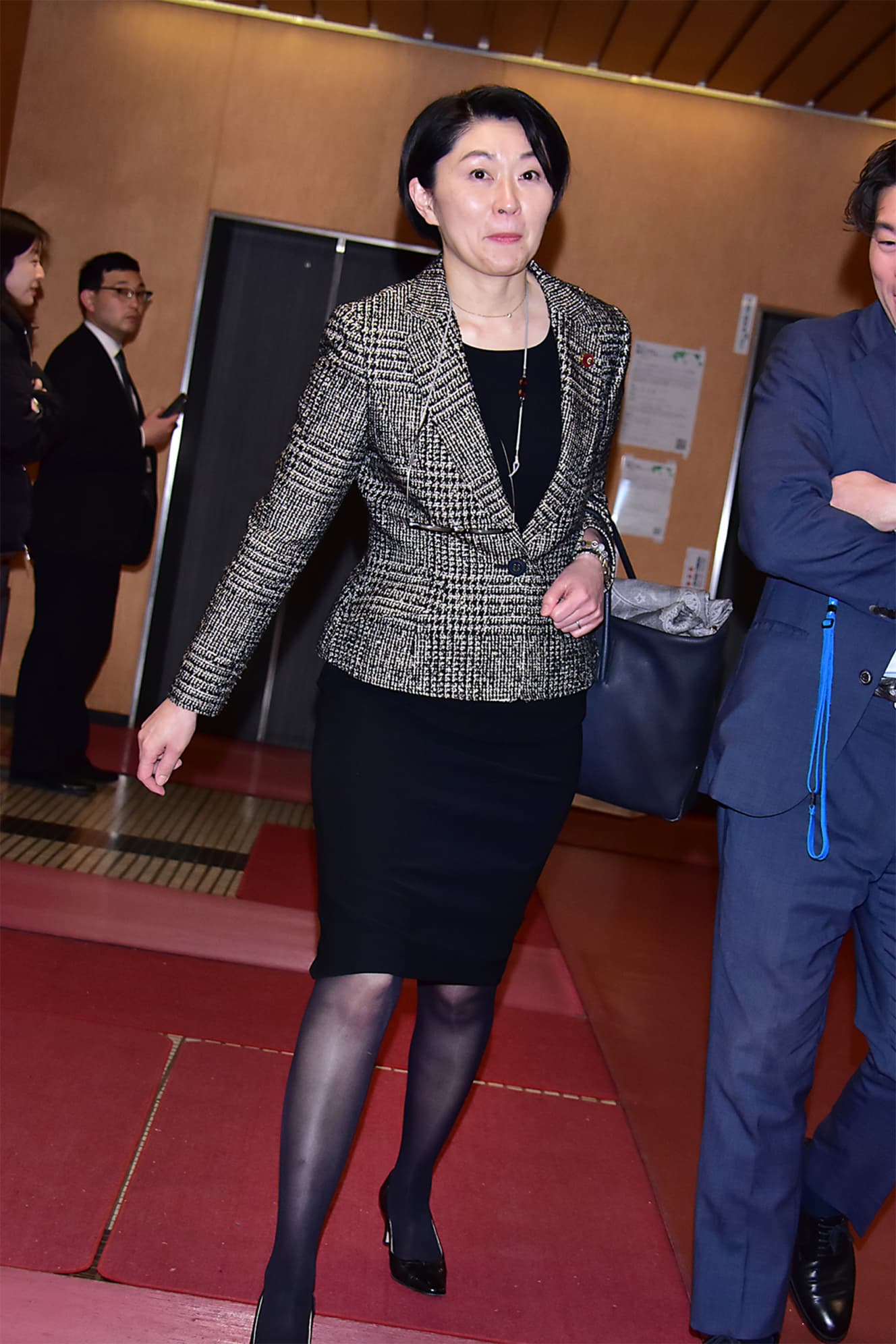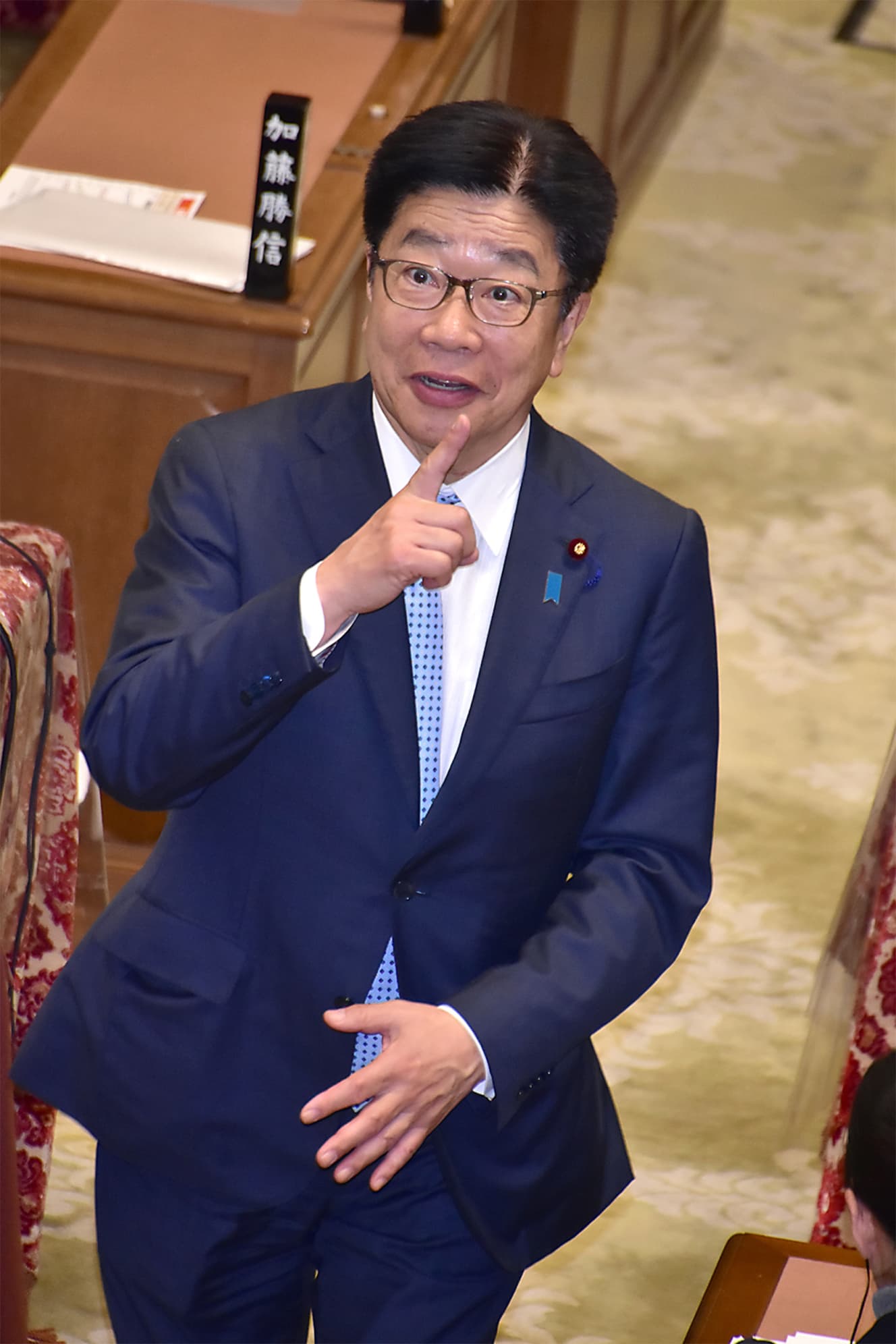Something Will Happen in May” – Secretary-General Mogi, Who Has Broken with the Prime Minister, Makes a Decisive Move to “Oroshi Kishida” (Kishida’s Downfall)
Something is going to happen in May.
Secretary General Toshimitsu Mogi, 68, is said to have been telling people around him recently with a meaningful expression on his face.

The Kishida administration was based on the “three-way politics” supported by Aso Taro, 83, vice president of the LDP, and Mogi, but a fissure appeared when Prime Minister Kishida Fumio, 66, suddenly announced on January 18 that his faction had been dissolved. There was no prior arrangement for this decision either.
On the evening of March 9, Prime Minister Kishida met with Vice President Aso at a Japanese restaurant in Tokyo for two and a half hours. It is believed that they discussed the disposition within the party of a lawmaker who had a slush fund problem over a political fund party. Three days after the declaration of the dissolution of the faction, Prime Minister Kishida still met with Vice President Aso. It is said that he apologized for the dissolution declaration there. However, he and Secretary General Mogi do not meet separately for dinner. The two are probably beyond repair.
When the three-headed government was in its heyday, Mr. Aso used to boast that “Mogi would be next, and then Yoshimasa Hayashi, the Chief Cabinet Secretary,” but he is not a hereditary Diet member. Mr. Mogi is not a hereditary Diet member, nor is he a former member of the LDP, having come from the Japan New Party. Nevertheless, he has risen to the right-wing of the “post-Kishida” camp because of his quick thinking, which is said to “make even the bureaucrats’ tongues wag.
Political journalist Akiko Azumi explains.
In 2006, as Minister of State for Economic Revitalization, he was recognized by the White House as a “tough negotiator” for bringing the Japan-US trade negotiations to a conclusion in a short period of time. He was appointed as Minister of Foreign Affairs for his efforts in bringing the difficult negotiations to a conclusion. He was also recognized by then President Trump, and was heavily used in the post-Abe administration.
On the other hand, he is also easily angered to the point of being ridiculed as an “instantaneous water heater. He gives detailed instructions and loses his temper immediately if he is displeased with even the slightest thing. The “Mogi Manual” is even shared among bureaucrats as a handbook. He is extremely good at his job, but he has a problem with human nature, and people do not follow him.
Prime Minister Kishida’s declaration to dissolve the faction caused the Mogi faction to split. Yuko Obuchi, 50, head of the election campaign headquarters, left the faction because of a clause in the 30-year-old political reform bill that stipulated that party executives could leave the faction. Four other members of the House of Councillors, including a senior member, followed suit.

A young member of the Mogi faction described the situation within the faction as follows.
The faction has allocated ministerial posts according to the number of times they have been elected, as was the case with Minoru Kihara as Minister of Defense, Kenya Akiba as Minister of Reconstruction, and Takeshi Wakamiya as Minister of Expo ’70. Because mid-career and young ministers were also given posts as deputy ministers and parliamentary secretaries, there were no overt complaints or dissatisfaction within the faction, with the exception of veteran members.
This is in contrast to the Seiwa-kai (the former Abe faction), where senior figures monopolized cabinet ministers and senior party positions, leading to a buildup of dissatisfaction among the middle-ranking and younger members of the faction. (The chairman (Mogi) had been managing the party in a flat manner and gradually enlarging the faction, but with the declaration of the dissolution of the faction, Obuchi and others left the party, and some members began to take a wait-and-see attitude. Although he has not directly expressed it in words, Mogi’s resentment toward the prime minister runs deep.
Mogi has thrown the responsibility for conducting internal party hearings and investigations into the slush fund issue to Yutaka Moriyama, 78, chairman of the General Affairs Committee. Criticism has begun to mount that Mogi has abdicated his responsibility.

Political scientist Yukiko Amakawa analyzes Mogi’s move as “a deliberate sabotage aimed at the presidential election in the fall.
He doesn’t want to make enemies within the party. To run for president, he needs 20 nominees, and he wants to win over as many Diet members as possible. Using the time freed up by sabotage, Mogi has been having a series of dinners with young Seiwa-kai lawmakers. The Seiwa-kai has been rattled by the slush fund issue, and the executives have their hands full protecting themselves. No one can take care of the younger members. The plan is to take advantage of this situation to close the distance between the two groups and keep the younger members in line.
The secretary-general is in a position to support Prime Minister Kishida. If Mogi were to announce his candidacy for the presidency, he would be subjected to heavy criticism from within the party. Mogi is said to be searching for the right moment to step down as secretary-general.
If he loses both of the three supplementary elections for the House of Representatives on April 28, he can resign as secretary-general, saying, “It is my fault. I would like to become a free man and hope to attract younger members of the Seiwa-kai to the presidential election,” Amakawa said.
He resigned in May and will run for the presidency in September. Will he be able to achieve his long-cherished goal of winning the presidency with a scenario devised by his brilliant mind?
Interview and text by: Daisuke Iwasaki Photo by: Takeshi Kinugawa